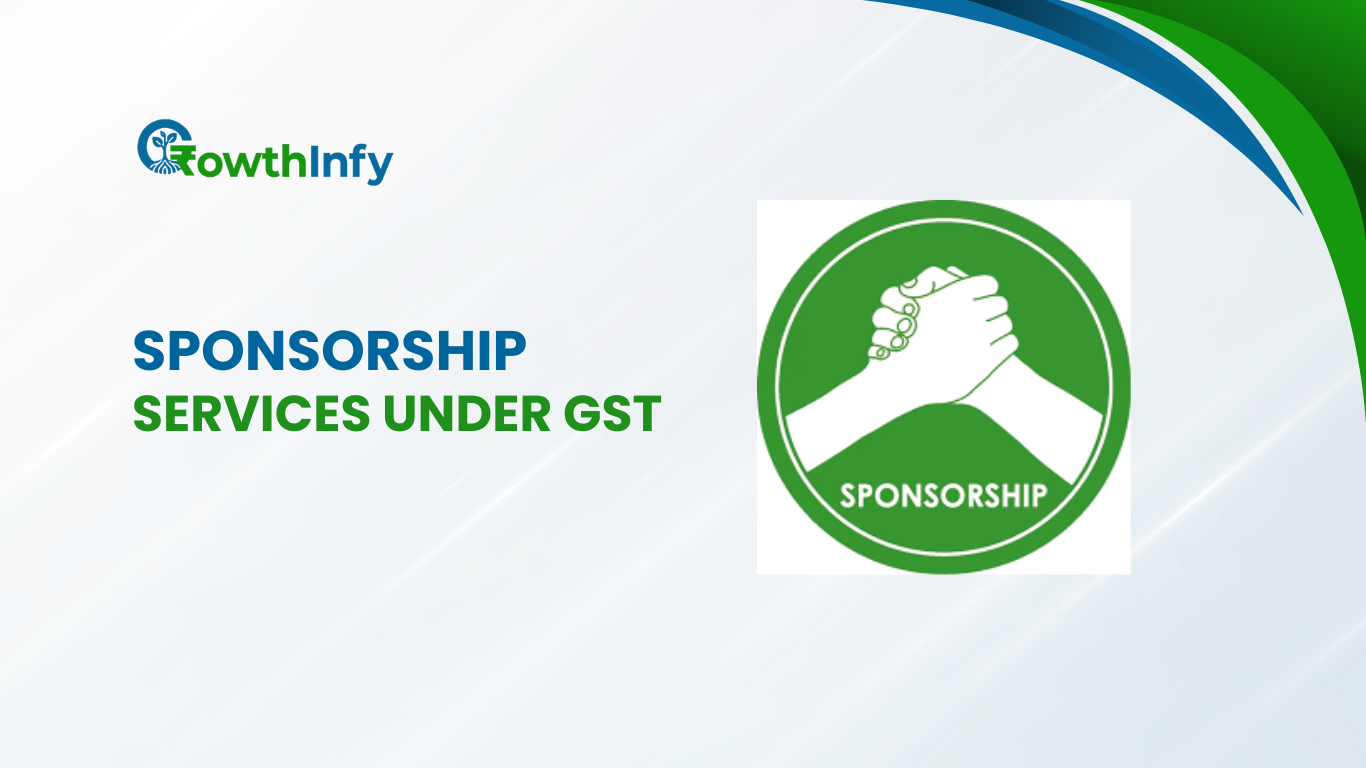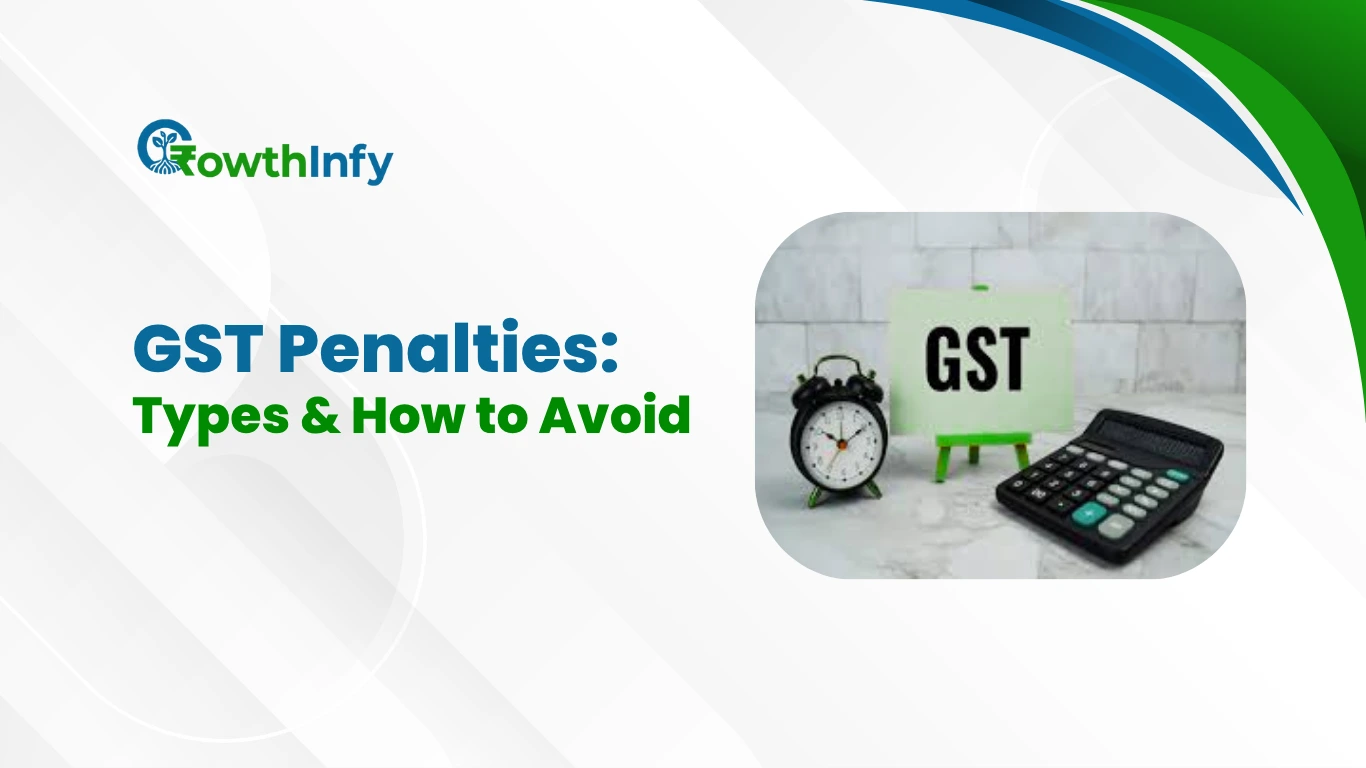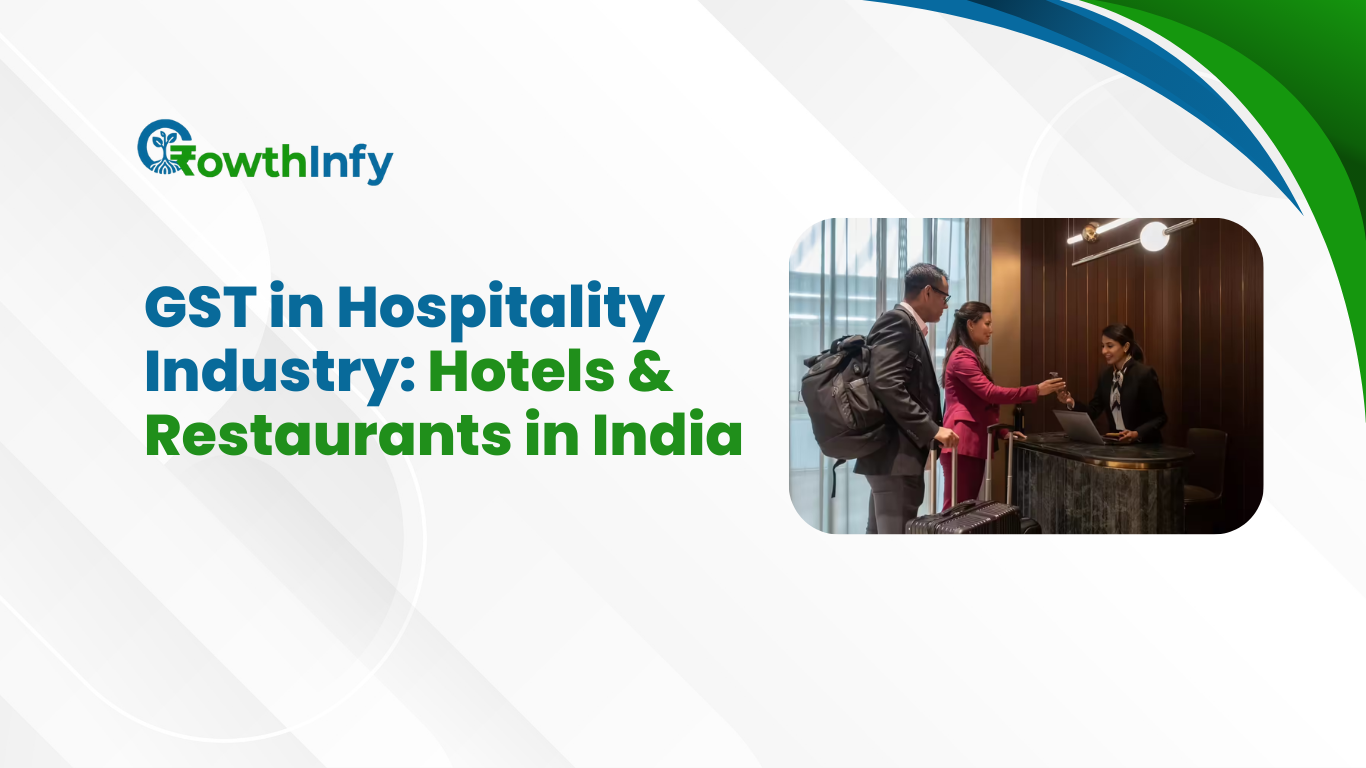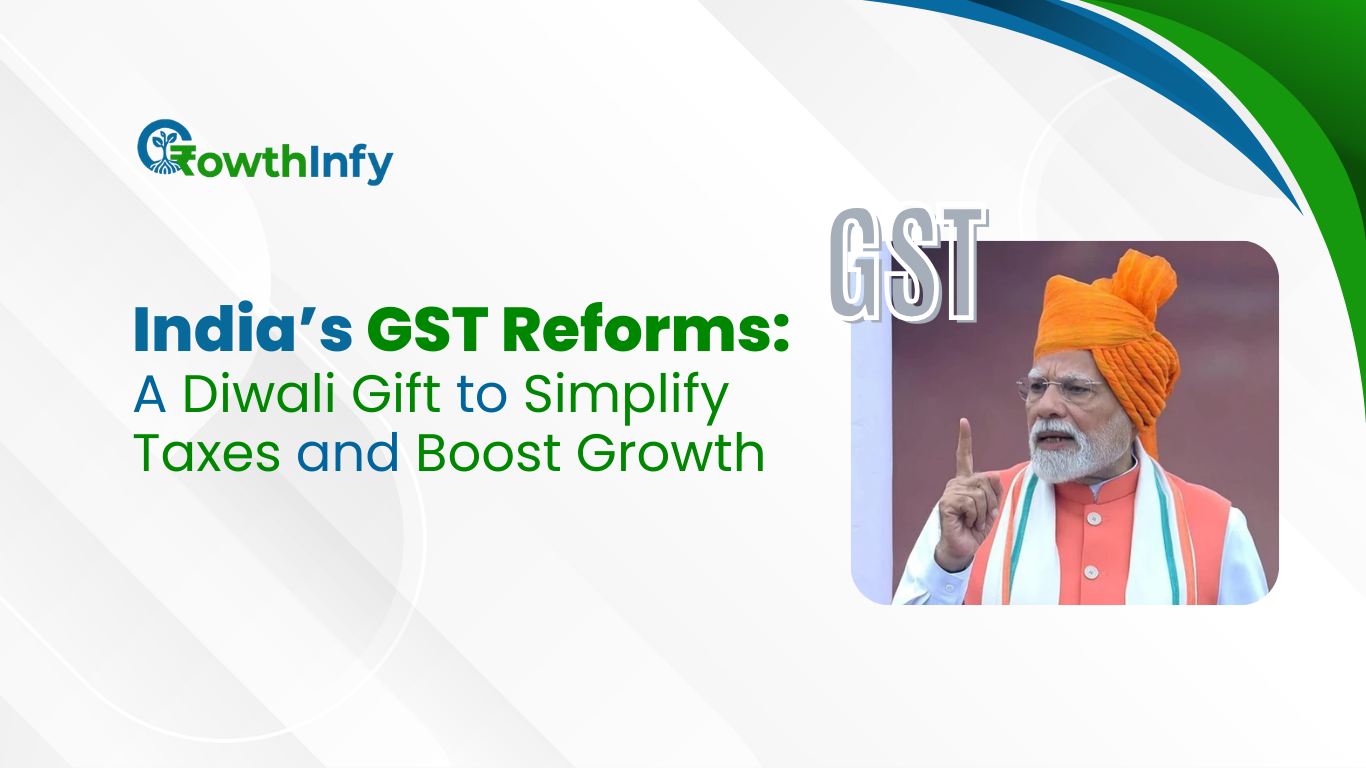Sponsorship Services Under GST: A Comprehensive Guide
Sponsorship services are an important part of promoting brands, events, and products within India. With the introduction of Goods and Services Tax (GST), the tax treatment of these services has significantly changed. This article discusses sponsorship services under GST by looking into the provisions surrounding these services, tax rates, exemption and compliance. Regardless of if you are the sponsor, or the recipient, it is important to be aware of GST on sponsorship services for uninterrupted tax management and compliance.
What Are Sponsorship Services?
Sponsorship services are based on a contract where a sponsor provides financial or material support to an event, individual, or organization, in exchange for promotional rights and reciprocal benefits as a result. The promotional rights and reciprocal benefits can include naming rights, logo visibility, or guaranteed booking. Under GST, sponsorship is considered a taxable supply of service and is not the same as donations and gifts under GST, because there are no reciprocal benefits that are considered as part of that supply.
To reach the right GST classification, the Service Accounting Code (SAC) for sponsorship services under GST is 998397, for classification purposes and reporting purposes in GST.
All businesses that provide sponsorship services and those that receive sponsorship services must understand the constraints imposed by the GST regulations for their tax and advisory worth, as well as to receive all of the appropriate input tax credit (ITC) benefits.

GST Applicability on Sponsorship Services
Sponsorship services are usually taxed at 18% GST and are taxable services. The supplier/recipient’s relationship and method used to send the payment to the sponsor determines the tax liability as either Reverse Charge Mechanism (RCM) or Forward Charge Mechanism (FCM). The new verbiage by the GST Council has now made the supplier responsibilities clearer as of January 16, 2025.
Reverse Charge Mechanism (RCM)
Sponsorship services are usually taxed at 18% GST and are taxable services. The supplier/recipient’s relationship and method used to send the payment to the sponsor determines the tax liability as either Reverse Charge Mechanism (RCM) or Forward Charge Mechanism (FCM). The new verbiage by the GST Council has now made the supplier responsibilities clearer as of January 16, 2025.
Forward Charge Mechanism (FCM)
Through recent amendments made by Notification No. 07/2025 – Central Tax (Rate), sponsorship services supplied by one body corporate to another body corporate or partnership firm have been brought within the FCM. The implication of this is that the supplier (body corporate) is required to charge and remit GST, which reduces the compliance burden for corporate sponsors-easier for them. The change is effective from January 16, 2025 and is accordingly the streamlining of recipients’ compliance obligations.
GST Rates for Sponsorship Services
The GST consumption tax on sponsorship services is generally 18%. This applies to most events, including sporting events, corporate events or commercial events. However, a reduced GST rate of 12% may apply for sponsorships for cultural or artistic events, such as music concerts, and an exhibition of art, but will depend on the situation involved. Businesses must verify which GST rate is applicable based on the event type for enrolled consumers who may apply the tax.
Some sponsorships, specifically sponsorship for the events above, and other events listed in Notification No. 12/2017-Central Tax (Rate) will be exempt from the GST consumption tax. To be more oblique, these GST exempt sponsorships include events organized by national sports federations, and the Indian Olympic Association, and potentially include events that are organized under the auspices of programmes such as the Panchayat Yuva Kreeda Aur Khel Abhiyaan.
If you want to dive deeper and become more acquainted with GST compliance, review this blog about GST registration. It can provide insight into the registration process for sponsors, businesses that are involved in sponsorship for compliance.
Input Tax Credit (ITC) on Sponsorship Services
Business can avails ITC on GST liable under RCM for sponsorship services if the said service is allowed to be an output supply for business purposes or toward taxable supply, per Section 16 of the CGST Act, 2017. Tax invoices or debit notes, along with proper documentation are very important to avail ITC. If a supplier is unregistered, the recipient must self-invoice so that they can avail ITC.
There is also the aspect of ITC reversal for sponsorship services supporting exempt supplies. In the example of sponsoring an exempt sporting event, there would have to be ITC reversal for the sponsorship expenses as this may have an impact on tax liability when considering the entire tax landscape.

Exemptions and Special Cases
Some sponsorships for activities or events may not attract GST. For instance, sponsorships for sporting events held by recognized bodies like the Association of Indian Universities or Paralympic Committee of India, exempt from GST. Similarly, contributions, donations, or gifts to charitable institutions without specific promotional benefits are not covered under GST as per CBIC Circular No. 116/35/2019-GST.
For example, if an acknowledgement of the donation (e.g., “Donated by Mr. Sharma”) does not result in a commercial element, then it is not taxable. However, if the acknowledgement provides a commercial benefit (e.g., “Sponsored by Sharma Enterprises”), then it is a sponsorship service and subject to GST.
Compliance Requirements for Sponsorship Services
Businesses dealing with GST on sponsorship services must adhere to strict compliance guidelines:
- GST Registration: If a business exceeds the turnover threshold (₹40 lakh for goods, ₹20 lakh for services or lower in special category states), it is required to register under GST. Voluntary registration is also acceptable if they want to claim ITC.
- Invoicing: Suppliers registered under FCM must issue a GST compliant invoice. Recipients registered under RCM have to prepare a self-invoice if the supplier is unregistered.
- GST Return Filing: The obligation to report accurately in GSTR-1, GSTR-3B, and to reconcile with GSTR-2A/2B. Annual returns (GSTR-9) will capture all sponsorship transactions.
- TDS Compliance: Under section 194C of the Income Tax Act, any amount paid by the purchaser sponsor to the supplier for sponsorship services may be liable for a deduction of TDS @ 10% if the purchase/sponsor exceeds the specified limit.
To streamline your GST filing process, check out this guide on GST return filing for practical tips.
Recent GST Council Amendments
The 55th GST Council Meeting (December 21, 2024) introduced key changes to sponsorship services under GST. The shift to FCM for body corporates simplifies tax collection but increases compliance responsibilities for suppliers, such as event organizers. Recipients must ensure GST is correctly paid and reflected in GSTR-2B to claim ITC. These changes aim to align India’s sponsorship tax regime with international standards and reduce compliance complexities.
Key changes relating to sponsorship services under GST were discussed and approved at the 55th GST Council Meeting (December 21, 2024). The transition to the FCM in cases where body corporates receive sponsorship services makes tax collection more straightforward but complicates compliance obligations for suppliers, i.e., event organizers. Recipients must also make sure GST is paid correctly and the amount is reflected in GSTR-2B before claiming input tax credit (ITC). These changes are designed to align India’s sponsorship tax regime with those of comparable countries and to reduce compliance requirements for stakeholders.
Practical Tips for Businesses
Stay Informed: Keep informed of GST Council announcements and CBIC notifications for all updates to sponsorship taxability.
- Examine Contracts: Make sure that your sponsorship contracts differentiate between sponsorship and advertisement to avoid potential misapplication.
- Leverage Technology: Use GST-compliant accounting programs to streamline the process of calculating and filing taxes.
- Complete Impact Assessment: Determine the impact that any changes to RCM/FCM will have on your finances and pricing.
Conclusion
Understanding what is involved in administering sponsorship services under GST can be challenging due to the complexity of RCM, FCM obligations, tax rate and exemptions, compliance obligations, etc. With the recent changes to allow FCM for body corporates as well as exemptions for unique occasions, it would be prudent for businesses to be proactive and plan their activities to ensure compliance and/or maximise their ITC benefits. Sponsors and recipients can better deal with their tax duties by keeping proper records, using software solutions for ease and more integrated reporting, and keeping up to date with GST updates and revisions.
If you would like to learn more about GST compliance and growing your business, head over to GrowthInfy for expert resources and guides.





Pingback: Reverse Charge Mechanism in GST: Key Insights & Rules - Growthinfy
Pingback: GST Registration: Who Needs It and How to Apply